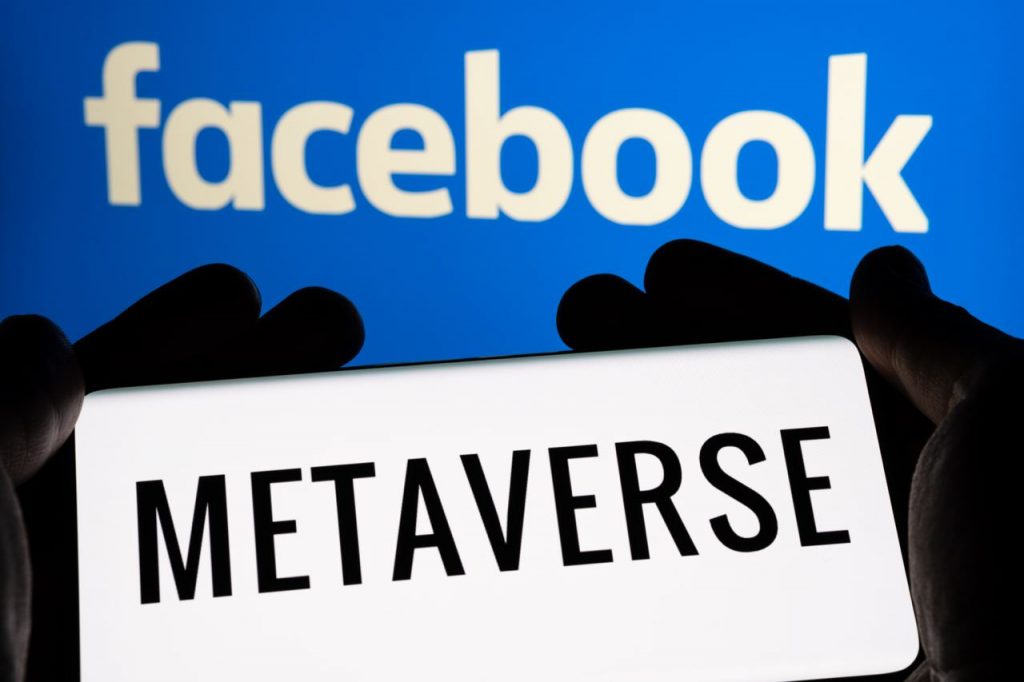Although the Metaverse is a virtual world, many people have already purchased profitable real estate in this space. When it comes to protecting your real estate in the Metaverse, having the proper type of insurance coverage is key. This rapidly developing and changing domain is rife with opportunities, and many investors are taking advantage of the new space to make money.
When it comes to securing virtual investments, you have a choice of several insurance products, including cybersecurity insurance and digital property insurance. While traditional homeowner’s insurance doesn’t cover virtual property, there are other ways to protect yourself. This guide offers insight and information to help you navigate this new virtual, digital world.
Understanding digital property

Digital property or digital real estate is anything you can buy that exists online, such as a URL (web address), an NFT, cryptocurrency, or even real estate within the Metaverse. Whatever type of digital property you invest in, securing the appropriate type of protection is vital to prevent theft or access via hacking and other nefarious means. While your physical home is a place you actually live in, digital real estate is virtual and therefore needs a different type of coverage than a traditional home. Aside from a website and intellectual property, many digital properties also include personal money accounts like a bank account that’s linked to the property, which should also be protected.
What is the Metaverse?

The Metaverse was created by Facebook CEO Mark Zuckerberg and merges the physical and digital worlds together. It blends augmented reality (AR) with virtual reality (VR) to create a world filled with activities like socialization, work meetings, and virtual neighborhoods and communities. Using a headset, you’re able to enter this new three-dimensional world and take part in everything that’s happening within the Metaverse. Digital property and the Metaverse go hand in hand and consist of things like blockchain technology that keeps track of your virtual assets.
Types of digital property
Here are some examples of digital property that may exist within the Metaverse:
- Photos, videos, eBooks, and other intellectual property that creates revenue (like an NFT)
- Websites and blogs that may bring revenue to the original owner
- In-game tools and in-game currencies
- Virtual objects and real estate that lives within the Metaverse
Most transactions are tracked via blockchain using a digital wallet. People can invest in real estate and then rent it, sell it, or flip it for a profit. Other ways to make money include creating your own characters and properties, hosting events, and even selling merchandise in the Metaverse. If you sell something, buyers purchase it with cryptocurrency, usually in a form that you request. Once the purchase is made, the cryptocurrency is transferred to your virtual wallet. The new owner can now keep the property and use it as they wish or sell it again for a profit later if they choose to do so.
Insuring digital property
Understanding the challenges of insuring digital property is key to finding the right type of coverage. Since this property is digital, you won’t be able to insure it via traditional means, such as regular home and auto insurance. A standard home insurance policy won’t cover digital real estate, so it’s vital to make sure you’re choosing the proper form of protection to secure your valuable digital assets.
Cybersecurity insurance protects you from phishing, malware, ransomware, and other cybercrimes that could threaten your assets. Digital property insurance helps to prevent digital losses, but it’s difficult to find because many major insurance companies aren’t yet able or willing to offer this type of product. Currently, general liability, cyber liability, and management liability insurance coverage are available for both individuals and businesses using blockchain. Data breaches, cybersecurity, and liability protection for digital assets are currently available from select companies, and it’s worth it to keep your online assets protected.
Modern-day insurance companies must adapt to an ever-changing landscape when it comes to insuring virtual real estate in the Metaverse. Underwriters may inspect a virtual property by looking at it within the Metaverse and assessing risk based on methods used to look for damage. Virtual reality can be utilized to train claims representatives to make accurate damage assessments. This can help ensure that claims are processed quickly and accurately. The insurance industry must change and adapt to this new world by coming up with accurate limits, definitions of what damage is, and how to process claims in a timely manner.
Ownership and valuation of digital assets
Traditional real estate and currency are based on their usefulness as a measure of value and a medium of exchange. In the digital world, cryptocurrencies are used, and there’s still much debate about how to value such currencies. Based on the asset holder’s digital wallet value, insurers can determine the value of said digital assets. However, because cryptocurrency exists in an ever-changing marketplace and exchange, these values can fluctuate wildly. Determining the correct value is crucial to ensuring that the policyholder is getting the level of coverage they need.
Security, cyber threats, and liability protection

Phishing, hacking, and other cyber crimes pose a real threat to the security of digital investments. Offering cybersecurity and liability protection is currently the best and most effective form of insurance when it comes to digital real estate and assets within the Metaverse and online. Securing your real estate online should at least include some form of liability coverage in the event you become a victim of such crimes. This insurance can compensate you for any losses incurred as a result of hackers, scams, online theft, or malware. Liability protection also protects individuals and businesses from a range of liability-related issues.
To avoid NFT scams, investors must be vigilant and take proactive measures to protect themselves in the rapidly expanding world of digital assets. The allure of NFTs has attracted both legitimate creators and fraudulent individuals seeking to exploit the market. When participating in NFT transactions, it is crucial to exercise caution and conduct thorough research. Verify the authenticity of the NFT and its creator, scrutinize the marketplace’s reputation, and be wary of suspicious offers or unrealistic claims. Additionally, consider using reputable platforms that prioritize security and implement robust authentication measures. By adopting a proactive approach, staying informed about the latest scam techniques, and remaining vigilant, investors can minimize the risk of falling victim to NFT scams and ensure a more secure and rewarding investment experience.
Legal and regulatory considerations
There are many legal and regulatory considerations for insuring digital assets to consider when you have digital property. Since cryptocurrencies aren’t regulated like money, it can be more difficult to protect them. For example, money in the bank is insured by the FDIC in the event of a loss, but cryptocurrency doesn’t have such coverage since a central bank or a government doesn’t regulate it.
The nature of digital assets is volatile and constantly changing, making it much more difficult to develop a uniform policy in regard to insurance coverage and protection of ownership. As the laws change and develop, new regulations will likely be put in place that are designed to protect investors and owners of digital assets and real estate.
Specialized insurance policies for digital assets

When comparing home insurance and specialized insurance for digital properties, the two types of insurance coverage differ in many ways. A “covered event” for a digital piece of real estate is much different than that of an actual, physical property. Cybercrimes and theft are common issues with digital assets, while things like natural disasters and fires are much more commonplace for actual property. A specialized policy should include coverage of losses and third-party liability associated with issues of network security, data privacy, or system failures. Research companies specializing in digital asset insurance coverage to find the right policy for your needs.
Coverage for theft, loss, and damage of digital property
Theft, loss, and damage are the most common issues when exploring insurance solutions for virtual assets. An insurance policy should compensate you for any losses incurred as a result of any of the items listed. Make sure you carefully read the fine print of your policy to ensure these specific items are listed as “covered events.” If someone were to hack into your cyberwallet or steal your real estate in the Metaverse, the right type of insurance policy covers this. The challenge comes when you need to file a claim and show proof that such an event occurred. Keep a paper trail and monitor your digital assets so you can provide detailed information in the event that a claim needs to be filed.
Policy limitations and exclusions
In general, when comparing home insurance and specialized insurance for digital property, both types of insurance have their own unique set of limitations and exclusions. Limitations refer to specific conditions or procedures covered by an insurance policy but at a lower benefit level than what may be stated in the policy. Exclusions are items that are completely omitted from your coverage. Always make sure you understand the difference between these two terms and look carefully at your own policy to ensure you’re getting the type of coverage you need. There may be some exclusions that specifically mention things like cyber incidents or cyber “acts,” which is why getting insurance that specifically mentions cyber security coverage is so important.
Virtual land ownership and its unique challenges
Since virtual land is secured via blockchain in the Metaverse, it’s generally more protected than traditional real estate. However, there are some unique challenges with this type of ownership. For example, establishing and proving property rights and ownership is much more difficult and ambiguous in the digital, virtual world.
Property rights in the virtual world
In the Metaverse, land parcels, buildings, or homes are digitally mapped and can be claimed by buying them via cryptocurrency. The virtual land parcel is considered an NFT that can be uniquely owned and interacted with by each respective owner. Since there’s no physical property, establishing official property rights can be challenging. There’s much more ambiguity when it comes to owning real estate in a virtual environment. Currently, the law hasn’t kept up with the fast-paced developments within the virtual real estate space. Due to a market dynamic that’s often speculative, the price of these digital assets can be considered unstable and volatile.
The interplay between real and virtual real estate laws
While there are countless laws in the books that deal with “real” real estate, the lines are much more blurred when it comes to virtual real estate. Many legal gray areas exist that can present serious challenges to virtual land and property owners. For example, proving theft or damage is much more difficult to do when you own digital real estate than it is when you own an actual, physical piece of property. Terms of use agreements and intellectual property laws are both utilized to protect virtual real estate owners. The exchange of things like NFTs and using cryptocurrencies are all done online without a formal paper trail, making it tougher to use as evidence in court.
Integration with traditional real estate and home insurance
Currently, traditional home insurance and digital real estate insurance are two completely different things. However, as the number of virtual real estate owners grows, more companies are adapting to this new environment and offering hybrid policies that cover both types of real estate. In the future, homeowners may opt to purchase additional supplemental coverage for their virtual property from the same insurance company. The excitement surrounding digital real estate offers new opportunities for growth for insurance companies all over the globe.
Collaboration with insurers and Metaverse platforms
Insurers, platform developers, and users of the Metaverse can now work together to come up with viable coverage solutions. For example, NFTs and avatars are digital assets with monetary value, so it’s only natural that insurers want to provide some form of coverage for these assets. While these items are more difficult to recover if stolen, theft and hacking are covered incidents that can provide compensation to virtual real estate holders with the right type of coverage. Event liability and cancellation within the Metaverse, liability related to user safety, and intellectual property and branding issues are some other things Metaverse users and creators can work on together with insurers.
Strengthening your digital asset protection strategy

Fortunately, there are things that digital asset owners can do to improve the security and protection of their assets. Through risk management, asset diversification, and other proactive measures, digital real estate owners can keep their assets safe and protected from a variety of threats.
Effective risk management strategies
Managing risk is the best way to protect your digital assets. Employ strong, effective cybersecurity measures to prevent hackers and malware. Implement regular software updates to include security patches and avoid high-risk activities within the Metaverse, including making “side deals” or agreeing to transactions that are outside of the platform.
Diversification of digital assets
Most savvy investors know the importance of diversifying their portfolios, and the same concept applies to digital assets. Hold a variety of digital assets, including NFTs and digital art, tokens, and virtual real estate. Having a more diverse group of products can help to safeguard against possible market volatility. It may also help to protect your investment against platform-specific risks. If one product is under threat or loses value, you’ll still have several other digital assets to turn to so you don’t lose your investment entirely.
Utilization of asset custody solutions
Using asset custody solutions can provide you with an extra layer of protection and security for your digital assets. These custody solutions include products like hardware wallets that store cryptographic keys tied to a virtual wallet. These hardware wallets store private and public keys that are used together to securely complete every transaction you make. Enlisting the help of a reputable custody service is also extremely important and helpful. These services monitor your digital accounts and portfolio to ensure there’s no suspicious activity and that your digital assets are safe and protected at all times.
Regular monitoring and updating of digital assets
Ultimately, it’s up to the digital asset holder to regularly keep track of and monitor their assets. Examine the status and value of your digital assets often and make prompt updates or changes to your portfolio as needed. When there are shifts in market conditions or when asset values change, you can move things around, sell certain real estate and other assets, or reinvest your money into new products. Keeping up with your personal digital asset portfolio is the best way to make positive changes to help you retain a good return on your investment while keeping your digital assets safe.
Final thoughts

Taking proactive steps is key to protecting your digital property and virtual real estate. Remember to keep a close eye on the future of insurance in the Metaverse and find out how new products can protect you from losses in the virtual world. This insurance plays a key role in shaping and securing your digital investments to keep them protected for many years to come.



